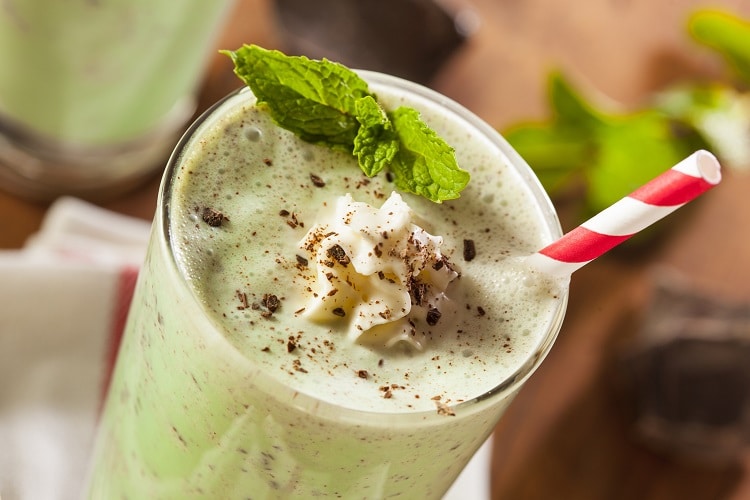Georges Perrier, the chef and owner of internationally famous Le Bec Fin in Philadelphia, is under attack by animal rights activists for serving duck liver and he’s having a hard time understanding why. Me too.
I’ve been paying attention to Georges Perrier since I first discovered my love for the haute cuisine in the early 1980s and began looking for guidance about how to execute it. For those who are fortunate enough not to remember what American gastronomy was like back then, you will have to trust me when I say that it was tough for a non-French–reading chef wannabe like myself to find information about how to cook contemporary classical cuisine. Georges Perrier was a singular godsend.
It is impossible to overstate Georges Perrier’s importance to American professional cooking and to the stratosphere of American fine dining. All students of American haute cuisine, from me to Tom Keller to Alices Waters, owe him our thanks and respect.
I’m unsure whether this is common knowledge, but Georges Perrier has a unique place in the world of American and French haute cuisine. He was a stagier (apprentice) at La Pyramide , the once perennial Michelin 3-Star restaurant of Fernand and his wife Mado Point, in Viennes, France.
Chef Point was the intellectual father of the culinary revolution, known as nouvelle cuisine, that has so transformed modern classical cooking that its effects are now only visible if you lived through it or have read enough to know what cooking was like before it happened. Georges Perrier is understood to be one of the chefs—along with Paul Bocuse, Jean and Pierre Troisgros, Alain Senderens and handfuls of others—who made that revolution happen. He is not your garden variety celebrity chef for whom cooking is the means to a vanity show on the Food Network; this man has gravitas.
So, when I read this interview with Chef Perrier in The Evening Bulletin (6/30/2007) and listened to him describe his resolve to continue serving foie gras and to resist caving in to animal-rights activists, it stopped me dead in my tracks with awe.
Whether or not you agree with organizations like PETA or the Humane Society of America (and the protesters they inspire) that force-feeding ducks to enlarge their livers is cruel, it seems mind-bogglingly unfair of them to target a man who has worked for more than 40 years to promote culinary excellence and the ideas of Chef Point who taught that all ingredients should be ultra-high quality, hand-raised or wild-natural products that should not be chosen for anything other than their intrinsic quality. I doubt that the protesters know any of this and suspect that if any do, they certainly don’t let it get in the way of their agitprop.
I’ve never met Georges Perrier, but as a chef who has cooked hundreds of pounds of foie gras and who has visited a farm where it is produced, I can understand how he must be feeling. To my chef’s mind, a lobe of fresh foie gras is a magnificent expression of the craft of an artisan farmer, and a fragrant and elegant reminder of all the chefs who worked so hard to bring it to the table. It is also one of the tools we use to make the the experience we have been born to produce. And so, for many of us, it is a verity.
Of course, foie gras is not essential to the craft of American haute cusine or anything other than the bottom line of the farms that produce it. And, if it disappeared tomorrow we would just cook something else. But, even though the people who are picketing Le Bec Fin are acting within their constitutionally protected rights to express their belief that foie gras should not be served or eaten, Chef Perrier is also right to resist them.
Rather than explain this bold-faced declaration, I’m going to follow it with an imaginary exchange between me and the chef that I hope will clear up any lingering doubt about the wisdom of Chef Perrier’s resolve to resist these well-meaning ideologues. It begins with the chef’s statements as excerpted from an interview with The Evening Bulletin.
Georges Perrier: “Here’s the problem: Today it is foie gras, but tomorrow it can be something else…Where does it end? Everything can be called ‘cruelty.’ Where does it end?”
Bob Del Grosso: Chef, this is exactly the point and why you should not capitulate as Wolgang Puck, Charlie Trotter and Steve Starr have done. It will never end for the most active people in the campaign against the production of foie gras because their goal is the elimination of animal suffering by human activity. So, this is going to be a long fight. Once they stop the production and sale of foie gras, they will target some other farmed animal product. Of course they will go after “factory-farmed” products first. But soon they will target “cruelty-free products” because many of them believe that no matter how well you treat an animal while you are raising it, the very act of killing is cruel and unnecessary; others believe that all animals should be left to live their lives unimpeded by human interference.
Once all the farmed animal products are eliminated then they will go after wild animal products. By this point, veganism will have become part of the primary cultural gestalt and will be a driving force behind the inspiration and codification of all manner of legislation.
Hunting, fishing and animal farms will be illegal. Books and movies that glorify or romanticize hunting and animal farming will be the targets of boycotts, censorship and in extreme cases where animal suffering is truly horrendous, such as Hemingway’s The Old Man and The Sea, banned outright.
Drug testing on animals who aren’t sick? Fahgedaboutit.
Uhm…what did I forget? Mandatory health insurance legislation for pets, minimum sentencing guidelines for pet owners who neglect to take their pets for regular check ups? Human stool test kits for vigilant parents who want to screen their kids for illicit meat consumption?
In the end, it doesn’t end. Not if you give free reign to your imagination and recognize that the animal rights folks who are giving you such a hard time about duck liver are really trying to reconfigure the food web to conform to the way they think it should be. So, although you may think that you are fighting for your right to cook duck liver, you are really fighting for much, much more.
Georges Perrier: You talk too much Del Grosso. When do you have time to cook?




One Comment